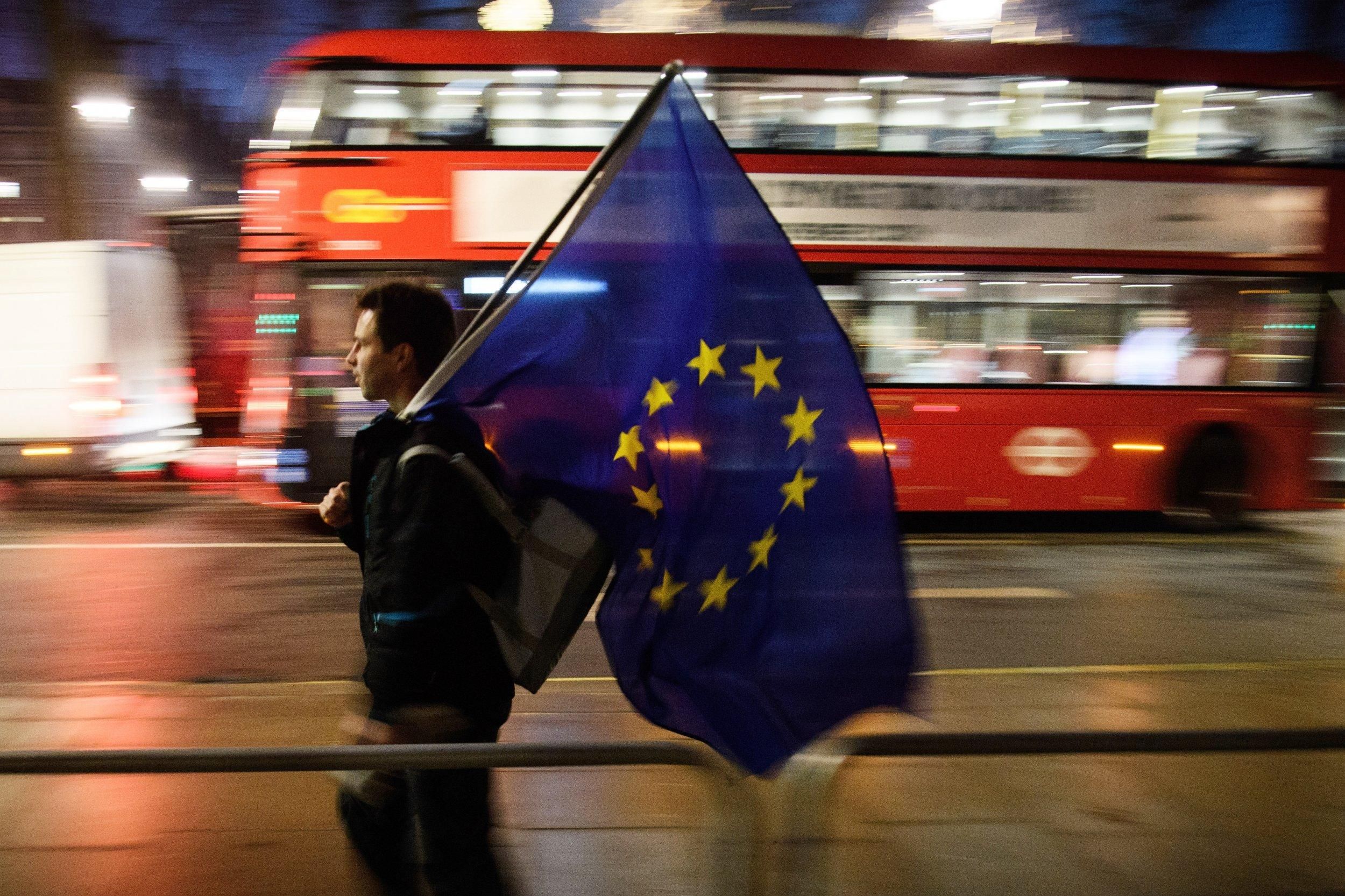In response to Russia’s invasion of Ukraine, European Union leaders and institutions have strongly condemned Russian aggression and the violation of international law. They demand that Russia immediately ceases military actions, unconditionally withdraws all forces and military equipment from the entire territory of Ukraine and fully respects Ukraine's territorial integrity, sovereignty and independence.
Read here US representative sees parallels between Putin and Hitler
The EU promised ‘massive sanctions’ against Russia: what do those sanctions actually mean?
The sanctions against Russia are the largest in the history of the European Union, and are designed to take a heavy toll on the Russian economy and the Kremlin.
Acting in close coordination with its partners and allies – NATO, G7, the United States, the United Kingdom, Canada, Norway, South Korea, Japan and Australia – the EU has so far agreed five waves of sanctions, on 23 February in response to Russian recognition of the non-government controlled areas of the Donetsk and Luhansk oblasts, on 24 February in response to the Russian invasion of Ukraine, and subsequently on 26 February, 28 February and 9 March.
Financial
The EU has excluded eight Russian banks from SWIFT, the world’s dominant financial messaging system for cross-border payments. Cutting off Russia from the network will cause major disruption to its economy as it will severely restrict the country's access to global financial markets, and makes it difficult for Russian firms and individuals to pay for imported goods or receive payments for their exports.
The EU has also banned the transactions of Russia's central bank, the single most important financial institution in Russia. This paralyses billions in foreign reserves, potentially turning off the tap on Putin's war.
EU sanctions further expand existing financial restrictions, cutting Russian access to the most important capital markets. They prohibit the listing and provision of services in relation to shares of Russian state-owned entities on EU trading venues, and introduce new measures which significantly limit the financial inflows from Russia to the EU, by prohibiting the acceptance of deposits exceeding certain values from Russian nationals or residents, the holding of accounts of Russian clients by the EU Central Securities Depositories, as well as the selling of euro-denominated securities to Russian clients. The sanctions include crypto-assets.
These sanctions target 70% of the Russian banking market, and key state-owned companies, including in the field of defence. They will increase Russia’s borrowing costs, raise inflation and gradually erode Russia’s industrial base. Additionally measures are taken to prevent the Russian elite’s fortunes from being hidden in safe havens in Europe.
Airspace and transport
The European Union is shutting down EU airspace for all Russian-owned, Russian registered or Russian-controlled aircraft, including private jets. They will no longer be able to land in, take off or overfly the territory of the EU.
The EU has also introduced an export ban covering goods and technology in the aviation and space industry, as well as a prohibition on the provision of insurance and reinsurance and maintenance services related to those goods and technology. Three quarters of Russia’s current commercial air fleet were built in the EU, the US and Canada.
Energy
The EU will prohibit the sale, supply, transfer or export to Russia of specific goods and technologies in oil refining, and will introduce restrictions on the provision of related services.
By introducing such an export ban, the EU intends to hit the Russian oil sector, and make it impossible for Russia to upgrade its oil refineries.
Technology
The EU has imposed restrictions on exports of dual-use goods and technology, as well as restrictions on exports of certain goods and technology which might contribute to Russia’s technological enhancement of its defence and security sector. This includes products such as semiconductors or cutting-edge technologies.
On 9 March, the EU introduced additional restrictions on the export of maritime navigation and radio communication technology, added the Russian Maritime Register of Shipping to the list of state-owned enterprises subject to financing limitations and introduced a prior information sharing provision for exports of maritime safety equipment.
Media
The EU has suspended the broadcasting activities of Sputnik and RT/Russia Today (RT English, RT UK, RT Germany, RT France, and RT Spanish) in the EU, or directed at the EU.
This measure will be effective until the aggression against Ukraine is put to an end, and until the Russian Federation and its associated outlets cease to conduct disinformation and information manipulation actions against the EU and its member states.
Restrictive measures
Restrictive measures now apply to a total of 862 individuals and 53 entities: they include an asset freeze and a prohibition from making funds available to the listed individuals and entities. In addition, a travel ban applicable to the listed persons prevents these from entering or transiting through EU territory.
The list includes the Russian President and Foreign Minister, the members of the National Security Council who supported Russia’s recognition of the two non-government controlled areas of the Donetsk and Luhansk oblasts, all the members of the Russian State Duma, who ratified the government decision of the Treaty of Friendship, Cooperation and Mutual Assistance between the Russian Federation and the two entities. It also includes oligarchs and businessmen active in the oil, banking and finance sectors, metallurgical, agriculture, pharmaceutical, telecom and digital industries, as well as government members, and high-level military personalities, and propagandists who have contributed to spread anti-Ukrainian propaganda and promote a positive attitude towards the invasion of Ukraine.
In addition, diplomats, other Russian officials, and businesspeople will no longer be able to benefit from visa facilitation provisions, which allow privileged access to the EU. This decision will not affect ordinary Russian citizens.
The EU has also taken measures to limit the sale of citizenship – so-called golden passports – that allow wealthy Russians to become EU citizens.
You can find all the latest sanctions updates on our #StandWithUkraine page and on the European Commission’s EU Solidarity with Ukraine page.


